The Ntahangwa Court of Appeal announced on Wednesday (November 20) its decision to keep in prison Agnès, Christine, Egide and Terence, all Iwacu reporters. Adolphe, their driver, was temporarily released.
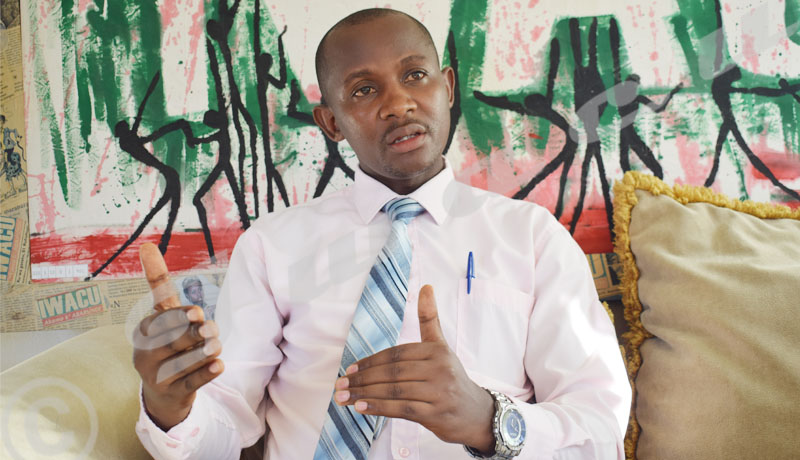
“It’s hard for us to accept this decision which is far from meeting our expectations.”
Reacting to this decision, one of the Iwacu reporters’ lawyers, Clément Retirakiza, expressed his disappointment: “Although one of the defendants, the journalists’ driver, was granted provisional release, it’s hard for us to accept this decision which is far from meeting our expectations.”
He says that “the prosecutor has the period of one month to transmit the documents of the file to the High court. At this level, the case will be treated on the merits. We will do everything to ensure that this trial is held as soon as possible,” he concluded.
Flashback on a real judicial saga
Tuesday, October 22
Around noon, Christine Kamikazi, Agnès Ndirubusa, Térence Mpozenzi, Egide Harerimana and their driver Adolphe Masabarakiza, arrive in Bubanza to investigate reported armed clashes in Bubanza area. That information had been circulating on social media since the morning of Tuesday.
On the spot, they are apprehended before they begin their work. Their equipment and phones are seized.
They spend their first three nights in the prison of the Bubanza provincial police station before being sent to the communal police station where they will spend a sleepless night. No charge is hitherto brought against them.
Saturday, October 26.
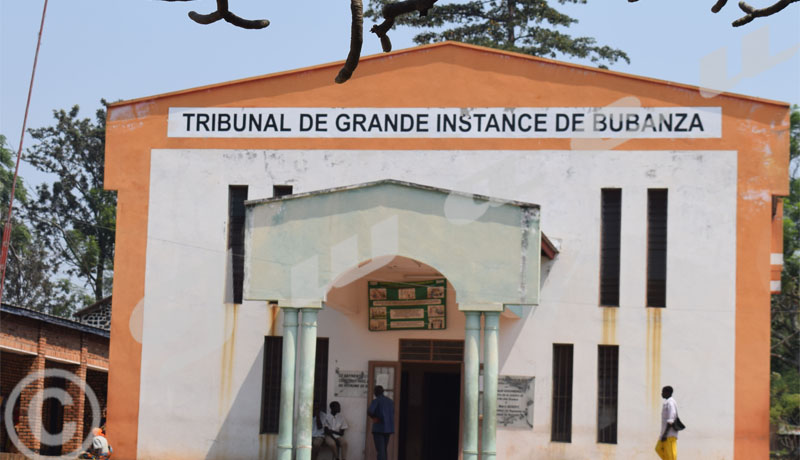
Bubanza High Court
After being heard by the investigating judge at the Bubanza prosecutor’s office, the prosecutor charges them with “complicity in undermining the internal security of the state.” They are immediately transferred to Bubanza prison.
The crucial moment…
Monday, October 28, 7th day of incarceration of Agnès, Christine, Egide, Térence and Adolphe. The investigation continues. The journalists and their driver already wear the green prison uniform.
This day, only Agnès is heard in the council chamber. After more than an hour, she goes out followed by the public prosecutor and the two lawyers of Iwacu Press Group. Information falls: the investigating magistrate will continue his inquiries the next day.
Tuesday, October 29, the 8th day of incarceration, is a crucial moment for Iwacu’s four journalists and their driver. The Council chamber will decide on the continuation of their preventive detention or their provisional release.
The decision takes time to be taken. After two hours of heated debate, the three lawyers of Iwacu announce the news: “We are confident, the judges must rule on the legality of their detention within 48 hours”.
At the same time, the Attorney General of the Republic, Sylvestre Nyandwi, issues a statement, on Thursday, October 31, quite negative for Agnès, Christine, Egide, Terence and Adolphe. He states that “these people have not been apprehended because they are journalists but for the accusations brought against them.
The cold shower
Thursday, October 31 is the day of the verdict. All those who support the four journalists and their detained driver cross fingers. They hope for their release. The announcement of the continued preventive detention of Agnès, Christine, Egide, Térence and Adolphe falls unexpectedly. The prosecutor’s office states that defendants have two days to appeal.
On Monday, November 4, the lawyers of the 4 journalists and their driver prosecuted for “complicity in undermining the internal security of the State” appeal the decision of the Court of Appeal of Ntahangwa. Agnès, Christine, Egide, Térence and Adolphe are on their 14th day of incarceration.
For Clément Retirakiza, one of the lawyers of Iwacu press group, there is still hope for the release of the 4 journalists and their driver detained in Bubanza prison. He refers to article 154 of the revised Code of Criminal Procedure, which states that “freedom being the rule and detention the exception, the accused may not be detained unless there is sufficient evidence of guilt against them and that the charges alleged against them constitute an offense which the law punishes with a penalty of at least one year of penal servitude “.
This trial will not last longer in the office of the Court of Appeal. The case is already scheduled for November 18th. The defendants will be heard in the Nthangwa Court of Appeals Chamber.
Sudden turn of events…
November 11th
To their great surprise, Agnès, Christine, Egide, Térence and Adolphe were summoned to appear before the judges of the Ntahangwa Court of Appeal in Bubanza court without their lawyers. The journalists refused to speak without the presence of their lawyers.
This is the 21st day of their incarceration.
The official appointment for a new interrogation session was however set for 18 November 2019 by the same Ntahangwa Court of Appeal.
Contacted, one of the lawyers of these 4 journalists will say that the lawyers have not been informed at all.
After insisting, on “a serious transportation problem to Bubanza,” the Ntahangwa Court of Appeal reconsiders its position and maintains the appointment of November 18.
Total disappointment
On Wednesday, November 20, the terrible verdict falls.
The Ntahangwa Court of Appeal decides to uphold the decision of the Bubanza public prosecutor’s office: the four journalists are to be kept in pre-trial detention. Only the driver will be provisionally released.
“A terrible blow for Iwacu Press Group and freedom of expression in Burundi,” said Antoine Kaburahe, founder of Iwacu.
Reactions
RSF: “Who will dare to cover sensitive topics now?”
 In its message published on the night of Thursday, November 20, Reporters without Borders expressed its indignation:”The increased pressure on Burundian journalists and media is alarming.” RSF wonders who currently dares to cover sensitive issues.
In its message published on the night of Thursday, November 20, Reporters without Borders expressed its indignation:”The increased pressure on Burundian journalists and media is alarming.” RSF wonders who currently dares to cover sensitive issues.
AFJO: “It is necessary that justice takes an impartial decision.”
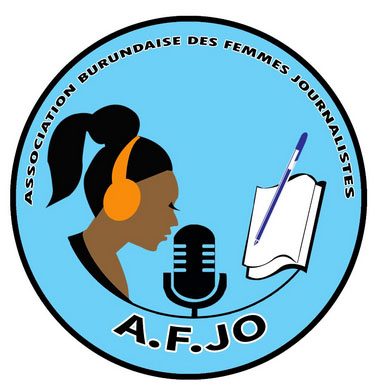 On the side of AFJO (Association of Women Journalists), Diane Ndonse, its chairperson, believes that justice must decide on this case as soon as possible. “They were arrested while doing their job. In this case, it is up to the courts to do everything possible so that they get freed. Otherwise, she is afraid this could slow down the enthusiasm of women to cover field issues. A 2016 National Media Regulator survey found that only 18% of women deal with fields topics versus 82% of men.
On the side of AFJO (Association of Women Journalists), Diane Ndonse, its chairperson, believes that justice must decide on this case as soon as possible. “They were arrested while doing their job. In this case, it is up to the courts to do everything possible so that they get freed. Otherwise, she is afraid this could slow down the enthusiasm of women to cover field issues. A 2016 National Media Regulator survey found that only 18% of women deal with fields topics versus 82% of men.
Messages from the founder of Iwacu Press Group
In an interview with a Belgian journalist, Antoine Kaburahe sent three messages. Excerpts
To the journalists in prison
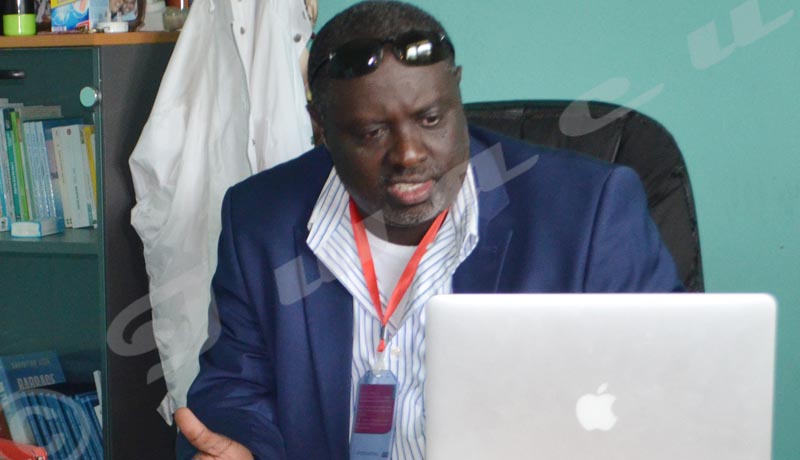 “A message of support and compassion. The prison is not a hotel and journalists are not super heroes. They are simple humans who want to live like everyone else and who suffer from prison conditions. I have a special thought for Agnès, the head of the political section of the newspaper. She is a young single mother with a nine-year-old son. It’s hard for her. But despite her fragile health, I think she will draw on her the strength to resist. I would especially like them to know that they are not alone. An immense solidarity with them was created around the world. And above all, they will come out stronger.”
“A message of support and compassion. The prison is not a hotel and journalists are not super heroes. They are simple humans who want to live like everyone else and who suffer from prison conditions. I have a special thought for Agnès, the head of the political section of the newspaper. She is a young single mother with a nine-year-old son. It’s hard for her. But despite her fragile health, I think she will draw on her the strength to resist. I would especially like them to know that they are not alone. An immense solidarity with them was created around the world. And above all, they will come out stronger.”
To the colleagues always at work in Burundi
“They deserve my respect. I admire their tremendous resilience. When I was forced to leave my country, Iwacu did not collapse. Great men and women are revealed in hard times. History will remember that during these difficult times, in Burundi, journalists remained dignified and standing.”
To the authorities
“A message of appeasement. Iwacu is not the problem. There are other issues in the country, especially at this moment. The existence of a good independent press group is even a plus for the country. Moreover, my colleagues and I receive many messages of support in Burundi! It is not because people do not say anything publicly that they adhere to this harassment. The observed restraint compared to what happens to us is very significant. Even on social media, I saw very few rejoice in the ordeal that Iwacu is going through. I love my country. I would like it not to be among the “predators of freedom of expression.”
I do not know who said that the way in which a power deals with journalists is a good indicator of its degree of tolerance … Letting Iwacu work freely would be a good message in this sense. Let’s not lose hope. ”
Story originally written by Alphonse Yikeze, Clarisse Shaka and Hervé Mugisha.
Translated into English by Pierre Emmanuel Ngendakumana

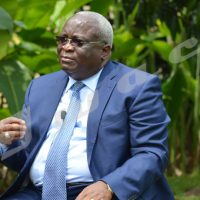
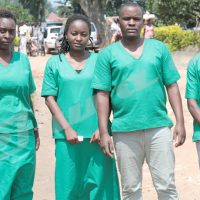

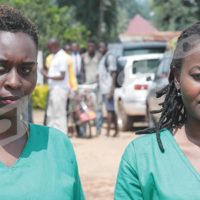













 IWACU Open Data
IWACU Open Data

